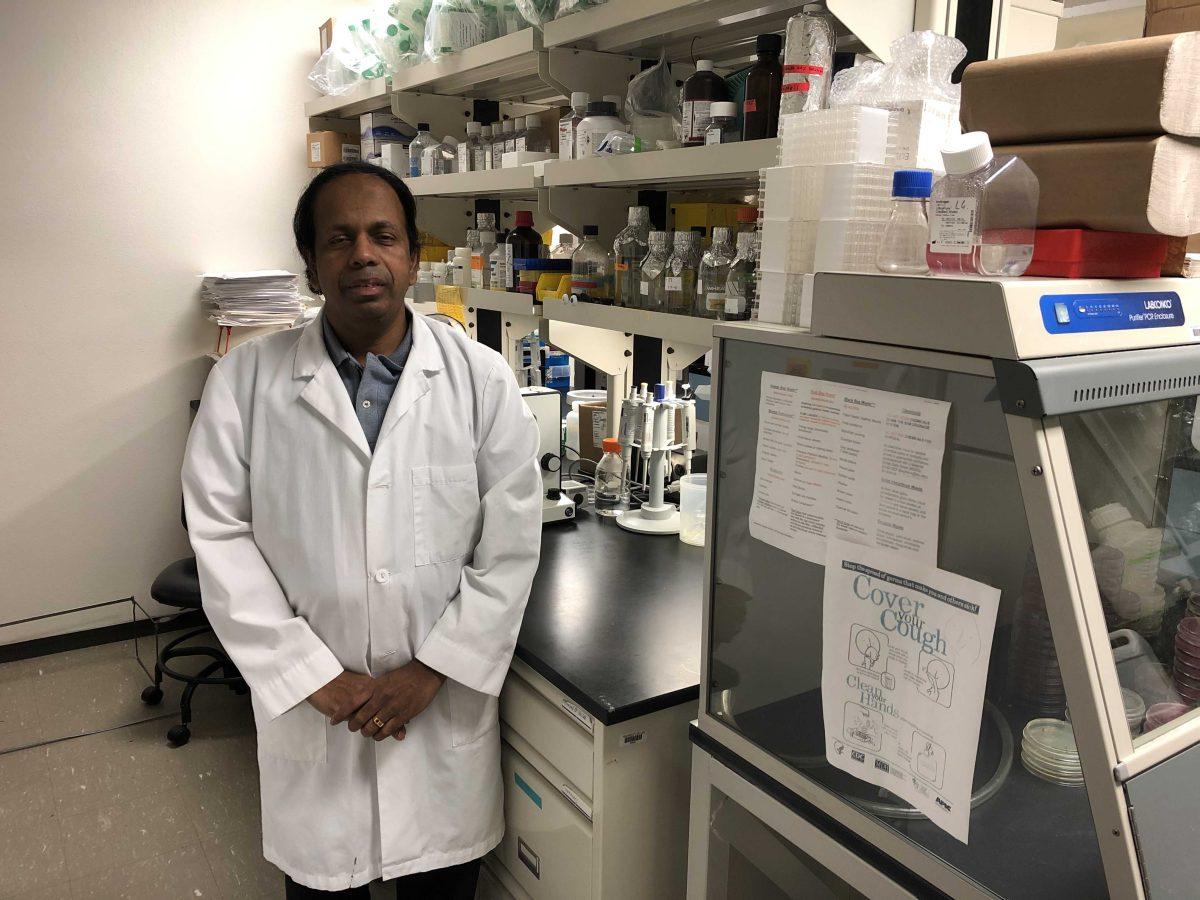The LSU School of Veterinary Medicine received a grant from the National Institutes of Health for $11.5 million to launch a new pulmonary research program called the Center for Lung Biology and Disease (CLBD).
The grant is the first step in a three-phase plan, which, over about 15 years, should net the University around $32 million, according to Samithamby Jeyaseelan, director of CLBD.
“Of course, we are incredibly proud, really excited and extremely grateful to pursue the opportunity into the next phase of the [Centers of Biomedical Research Excellence ] report,” Jeyaseelan said.
Centers of Biomedical Research Excellence, or COBRE, is a program at the National Institutes of Health, promotes the development of state-of-the-art medical research facilities at universities around the country.
From epidemiological data, researchers have determined that Louisiana residents have a higher chance of lung diseases or ailments than most other states. Jeyaseelan said the heat and humidity common in the state contributes to pulmonary health issues. Cultural factors like drinking alcohol and smoking tobacco which are more frequent in Louisiana also contribute to pulmonary health issues.
The American Lung Association currently has an “F” grade for Louisiana in the tobacco prevention and cessation funding category, and a “C” grade for smoke-free air.
An average day for Jeyaseelan consists of overseeing the CLBD program, reviewing research conducted by his assistants and colleagues, meetings and writing research-related material.
Jeyaseelan said he first submitted the proposal in January 2018 to the National Institutes of Health. From there, the proposal went through a peer review process and was given an overall grade, which Jeyaseelan said was high and encouraging to the research team.
Gus Kousoulas, LSU associate vice president for research and economic development, said the grant was funded in its first submission, while normally at least one revision is required.
The main purpose of the grant is to establish highly-skilled pulmonary health investigators at LSU who can begin their careers with the support of a large-caliber university and then branch out nationally, Kousoulas said. The University also expects economic benefits for the state of Louisiana.
“Every $1 of National Institutes of Health funding translates to $5 of economic impact stemming from employing personnel, research spending and product [drugs] development,” Kousoulas said.
In addition, the new research program will likely draw talented investigators that can create new technologies, patent them and, ideally, create companies that would feed into the state economy.
Jeyaseelan said he is most excited about this economic improvement and groundwork for individual discoveries.
“It sets essential milestones in research that they have to fulfill and includes the remarkable value of personalized mentoring,” Jeyaseelan said. “It is indeed an awesome program.”










